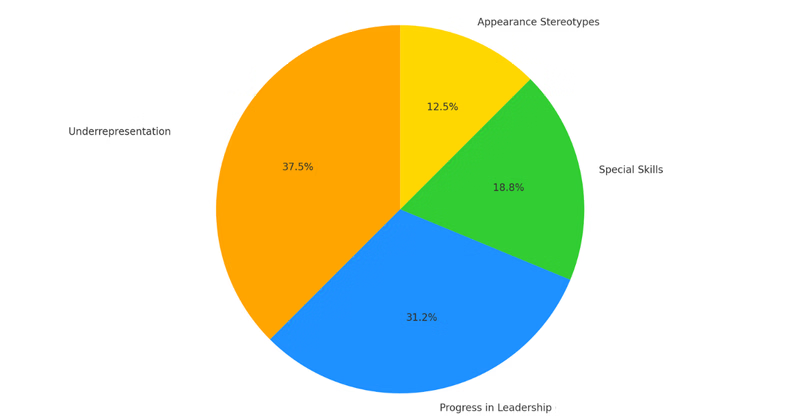
As the iGaming industry grows, discussions about diversity and inclusion are becoming more prominent. During 2024’s SBC iGaming conference in Lisbon, we randomly spoke to professionals from the various attending companies to hear their thoughts on the role of women in iGaming. Their responses yielded data that is quite interesting to interpret. Let’s have a look.
Women’s representation in the iGaming industry presents a mixed picture, with growth in some areas and ongoing barriers in others.
Many contributors pointed out that women are still in the minority. A representative of EveryMatrix shared that women remain "very much undervalued and overlooked" in the sector.
An employee at WA.Technology estimated that "80% of the industry is dominated by men" and noted that women are often placed in client-facing roles where they excel but are less visible in other areas. Similarly, a participant from Atlaslive raised concerns about women’s sexuality being used in sales strategies, calling for more recognition of their professional skills and abilities.
On the other hand, some companies have made notable progress in gender equality. A representative of Comtrade Gaming shared that over half their staff are women, with 18 out of 28 members of their business development team being female. They highlighted women’s attention to detail as a key strength. A participant from Finnplay commented that nearly half their staff are now women, a significant improvement compared to two years ago. They aim for a 50:50 gender balance across staff and player demographics, while acknowledging the challenges of designing products that appeal equally to men and women.
This contrast shows that while progress is being made, there is still a long way to go before achieving true gender balance in the industry.
The growing presence of women in leadership roles is a positive step for the iGaming industry. One professional shared that their team now has an equal gender balance, including women in C-level positions. Representatives from Uplatform highlighted the rising number of female CEOs and decision-makers excelling in leadership. Others observed that management roles, once dominated by men, are becoming more balanced as more women take on these positions.
However, despite this progress, some outdated views still persist. Participants noted that traditional perceptions remain, with one mentioning that combining women’s attractiveness with business skills is often seen as a strength, a view that reinforces stereotypes. Another pointed out that while using women purely for sales purposes has become less common, the stigma hasn’t completely disappeared.
This contrast between improvements and remaining challenges highlights the complex journey toward true gender equality in iGaming. While barriers are being broken, there is still work to be done to shift old attitudes and eliminate stereotypes.
Views on women’s contributions to the industry varied, but many agreed on their strengths in sales, negotiation, and attracting attention.
A participant from Innovecs iGaming shared that women represent a large part of their team and play a key role in driving sales. A participant from Upgaming said women are strong negotiators, while another from Slotegrator noted that women’s ability to draw attention is still an important part of the industry’s marketing.

Based on 16 responses, we identified several recurring themes:
The role of women in iGaming is complex, marked by significant growth yet still facing barriers. While many companies are trying to achieve gender equality, underrepresentation and outdated perceptions persist.
Download our report for all the data and charts.
The Gamingtec website utilizes cookies to store and access visitor information with the purpose of enhancing security and improving the browsing experience. If you do not wish for the collection of such information, you can toggle these off:
Necessary
Necessary cookies are essential for the website to function properly. This category only includes cookies that ensure basic functionalities and security features of the website. These cookies do not store any personal information.
Marketing
Marketing cookies track your online activity to help advertisers deliver more relevant advertising or to limit how many times you see an ad. Said information can be shared with other organizations or advertisers. These are permanent cookies and almost always of third-party provenance.
Analytics & Statistics
Analytical and statistical cookies are used to understand how visitors interact with the website. These cookies help provide information on metrics such as the number of visitors, traffic sources, etc.